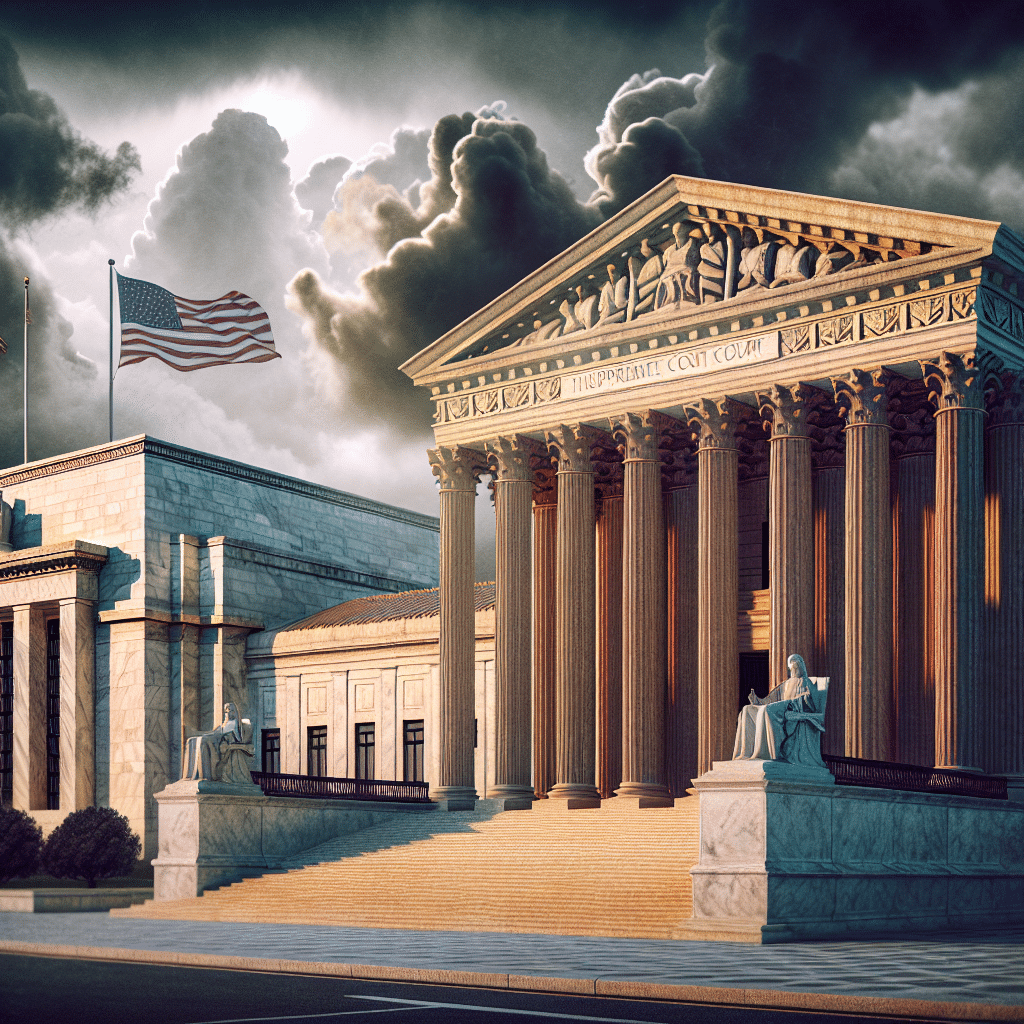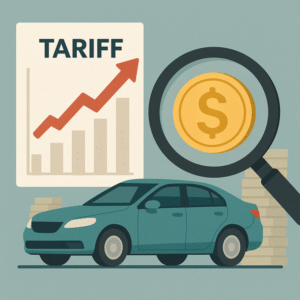Fed Independence Could Take a Hit from the Supreme Court
The Federal Reserve, often referred to as the Fed, plays a crucial role in the United States economy. With its primary focus on managing inflation and maintaining employment levels, the Fed’s independence from political influence is vital. However, recent developments suggest that this independence could face significant challenges, particularly from the Supreme Court. In this article, we will explore the implications of potential judicial interventions in the Fed’s operations and decision-making processes.
The Importance of Fed Independence
The independence of the Federal Reserve is a cornerstone of its effectiveness. A central bank that operates free from political pressure can make decisions based solely on economic indicators and long-term goals. This independence is essential for several reasons:
1. Credibility: An independent Fed garners trust from the markets and the public. When the Fed’s policies are not subject to political whims, investors and consumers can make informed decisions based on the central bank’s credibility.
2. Stability: Political motivations can lead to short-term thinking, which is detrimental to the economy. An independent Fed helps ensure that monetary policy focuses on sustainable growth rather than appeasing political interests.
3. Expertise: The Fed is comprised of economists and financial experts who understand complex economic indicators. Allowing these professionals to operate without external pressure leads to better-informed decisions.
4. Inflation Control: A politically-driven central bank may prioritize immediate economic growth over long-term stability. This trade-off can lead to inflation, undermining the purchasing power of consumers.
Supreme Court’s Role in Fed Independence
Recent legal challenges have raised concerns about the Supreme Court getting involved in the Fed’s decision-making processes. The Supreme Court has the power to interpret the law, which can impact the Fed’s operational framework. A few key areas of concern include:
1. Legal Challenges to Fed Policies
Various stakeholders, including businesses and individuals, may challenge the Fed’s policies in court. If these cases reach the Supreme Court, the justices could set precedents that limit the Fed’s ability to operate independently. For instance, if the court sides with litigants who argue that certain Fed policies are unconstitutional, it could undermine the Fed’s authority.
2. Changing Interpretation of Administrative Powers
The Supreme Court’s interpretation of administrative powers could fundamentally change how the Fed operates. If the Court decides to impose stricter scrutiny on federal agencies, including the Fed, it could face increased challenges in implementing its policies. This could hinder the Fed’s ability to react swiftly to economic crises or changing market conditions.
3. Political Appointments and Ideological Shifts
The composition of the Supreme Court can significantly impact its decisions regarding the Fed’s independence. With a court that leans toward a particular ideological viewpoint, there may be a greater likelihood of decisions that favor political intervention in monetary policy. This shift could severely jeopardize the Fed’s autonomy and introduce volatility into the economy.
Potential Consequences of Eroding Fed Independence
If the Supreme Court takes an active role in diminishing the Fed’s independence, the repercussions could be far-reaching. Some potential consequences include:
1. Increased Market Volatility: A central bank that operates under political influence may create uncertainty in the markets, leading to increased volatility and erratic economic behavior.
2. Diminished Credibility: As mentioned earlier, the Fed’s credibility may suffer if it is perceived as a tool of political agendas. This loss of trust can erode the effectiveness of monetary policy.
3. Short-Termism in Policy Making: Political pressures may prompt the Fed to adopt short-term policies that prioritize immediate benefits over long-term growth. This could lead to economic instability in the future.
4. Impact on Inflation: An interventionist Fed may be less effective in controlling inflation. If market participants perceive that the Fed is reacting to political pressures, inflation expectations may rise, leading to a self-fulfilling prophecy.
Conclusion
The independence of the Federal Reserve is a pivotal element in maintaining a stable and sustainable economy. However, the increasing potential for Supreme Court interference poses a significant risk to this independence. As the legal landscape evolves, stakeholders must remain vigilant to protect the Fed from potential political encroachment.
In a climate where judicial decisions can reshape the operational landscape of one of the most critical institutions in the U.S., it is essential to advocate for the preservation of the Fed’s autonomy. A centralized approach, free from external pressures, is necessary to uphold the credibility and effectiveness of monetary policy.
Ultimately, safeguarding the independence of the Federal Reserve is not just about protecting an institution; it is about ensuring the stability and growth of the entire economy. As we navigate these complex legal and political waters, the implications of the Supreme Court’s role in shaping monetary policy will undoubtedly be a focal point for years to come.



